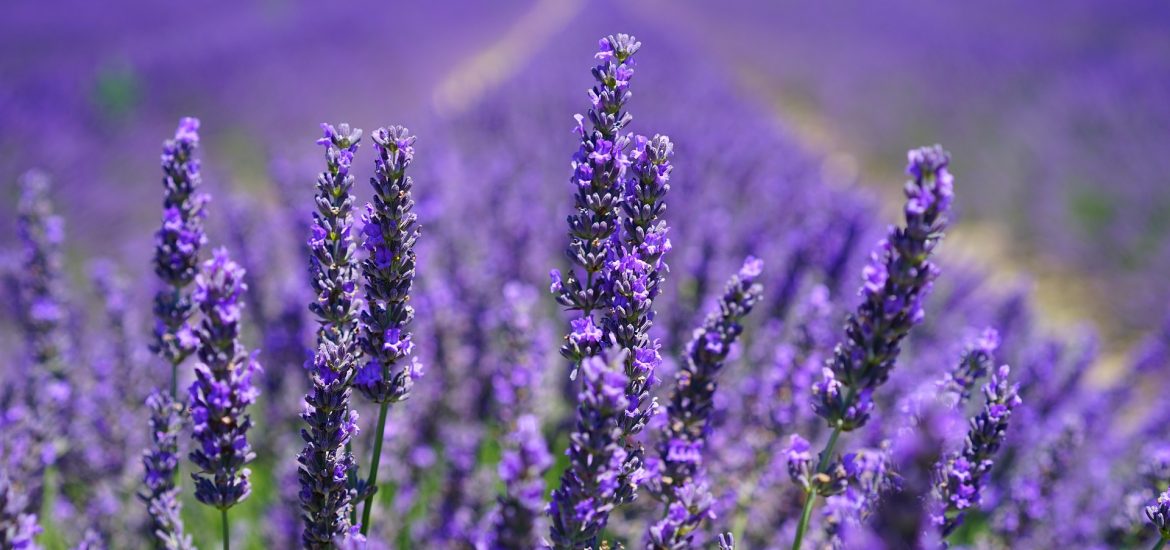Table of Contents
Have you ever wondered why lavender is so often associated with sleep? Could this fragrant herb really help us to get some much-needed rest? The answer is yes! It has been used as a sleep aid for centuries, and science is now beginning to reveal why its scent is so powerful in promoting relaxation and calming the mind. From its ability to reduce stress hormones to its anti-inflammatory properties, lavender has an impressive range of benefits that make it an ideal natural sleep aid.
How Lavender Can Reduce Stress and Promote Relaxation
The calming and soothing effects of lavender have been known for centuries and have been used to treat a variety of conditions, ranging from anxiety and depression to insomnia. But what is it about this fragrant herb that makes it so powerful? How lavender helps you sleep? One of the key components of this herb is linalool, which is an essential oil with calming and sedative properties. When inhaled, linalool can help to reduce the levels of stress hormones in the body, such as cortisol and adrenaline, which can help to promote relaxation and reduce anxiety.
In addition to its stress-reducing properties, lavender is also known to have anti-inflammatory effects. Studies have shown that lavender can help to reduce inflammation in the body, which can help to reduce muscle tension and improve overall relaxation. This can be particularly beneficial for those suffering from chronic pain or tension-related conditions, as it can help to promote relaxation and pain relief.
The scent of lavender is also known to be a powerful sleep aid. When inhaled, lavender can help to reduce the levels of the stress hormone cortisol, which can help to promote a calm and relaxed state of mind. This can help to prepare the body and mind for sleep and can even help to reduce the amount of time it takes to fall asleep.
How Lavender Can Help with Insomnia
The calming and sedative effects of lavender make it an ideal natural sleep aid for those suffering from insomnia. Studies have found that lavender can help to reduce the amount of time it takes to fall asleep and can also improve the quality of sleep. In addition to its sedative effects, lavender also has anti-inflammatory properties which can help to reduce chronic pain and muscle tension. This can be beneficial for those suffering from conditions such as fibromyalgia, which can make it difficult to get a good night’s sleep.
The calming and soothing scent of lavender can also help to reduce stress and anxiety, which is often a cause of insomnia. Inhaling the scent of lavender can help to reduce the levels of the stress hormone cortisol, which can help to reduce anxiety and promote relaxation. This can help to prepare the body and mind for sleep and can help to reduce the effects of insomnia.
How to Use Lavender for Improved Sleep
If you’re looking for a natural way to improve your sleep, lavender could be the answer. There are a few different ways to use lavender to promote relaxation and improve sleep quality. The most common way to use lavender is through aromatherapy, which involves inhaling the essential oil of the plant. You can buy essential oils online or in health stores, and they can be used in a diffuser or added to a relaxing bath. Alternatively, you can also buy dried lavender and add it to your pillow or bedsheets, or use it in a relaxing herbal tea.
The Best Forms of Lavender for Sleep
When it comes to using lavender to help sleep, there are a few different forms to choose from. The most common is the essential oil of the plant, which is widely available and easy to use. Essential oils can be used in a diffuser to fill your bedroom with a soothing scent, or added to a relaxing bath before bedtime. You can also buy dried lavender, which can be added to your pillow or bedsheets to fill your bedroom with a calming scent.
Recipes for Natural Sleep Aids Using Lavender
If you’re looking for a natural way to promote relaxation and improve sleep, lavender is a great choice. There are a few different recipes you can use to create natural sleep aids using lavender. One of the simplest is to add a few drops of lavender essential oil to a warm bath before bedtime. This will help to fill the room with a calming scent and can help to reduce stress and promote relaxation.
You can also make a sleep sachet to fill your bedroom with a soothing scent. To do this, mix 1 cup of dried lavender with ½ cup of oats and add a few drops of lavender essential oil. Place the mixture in a cotton or muslin bag and tuck it into your pillowcase. This will help to fill your bedroom with a calming scent and can help to promote relaxation and reduce stress.
Common Mistakes to Avoid with Lavender Sleep Aids
While lavender is an incredibly powerful natural sleep aid, there are a few common mistakes to avoid. One of the most important things to remember is to not overuse lavender. While it can be beneficial to use lavender essential oil in a diffuser or add it to your pillowcase, using too much can be overwhelming and can actually have the opposite effect.
Another mistake to avoid is using synthetic lavender products. While these products may be cheaper, they don’t have the same therapeutic effects as natural lavender. Make sure to use only pure, natural lavender products for the best results.
Finally, it’s important to remember that lavender is not a cure-all. While it can be helpful in promoting relaxation and improving sleep quality, it’s not a replacement for professional medical advice. If you are suffering from chronic insomnia or other sleep disorders, it’s important to talk to your doctor about the best treatment options for you.
Tips for Using Lavender for Sleep
If you’re looking for a natural way to improve your sleep, lavender could be the answer. Here are a few tips to help you get the most out of your lavender sleep aids:
- Use pure, natural lavender products. Synthetic lavender products won’t have the same therapeutic effects as natural lavender.
- Start with a small amount of lavender. Too much lavender can be overwhelming and can actually have the opposite effect.
- Use lavender in a diffuser or add it to your pillowcase for a calming scent.
- Make a sleep sachet with dried lavender and oats to fill your bedroom with a soothing scent.
- Take a relaxing lavender bath before bedtime to help promote relaxation and reduce stress.
- Talk to your doctor before using lavender if you suffer from chronic insomnia or other sleep disorders.
The Best Lavender Essential Oils for Sleep
If you’re looking for the best lavender essential oils for sleep, there are a few different options to choose from. Lavender essential oil is widely available and can be used in diffusers, added to relaxing baths, or applied directly to the skin. Some of the best lavender essential oils for sleep include:
- Lavender (Lavandula angustifolia): This is one of the most popular varieties of lavender and is renowned for its calming and soothing properties.
- Roman Chamomile (Chamaemelum nobile): This delicate scent is known for its sedative effects and can help to promote relaxation and reduce stress.
- Ylang Ylang (Cananga odorata): This exotic scent has a calming and soothing effect and can help to reduce anxiety and promote relaxation.
- Bergamot (Citrus bergamia): This citrusy scent has been used for centuries to promote relaxation and improve sleep quality.
Conclusion
Can lavender help you sleep? Simply, yes. Lavender is an incredibly powerful natural sleep aid, with an impressive range of benefits that make it ideal for promoting relaxation and improving sleep quality. From its ability to reduce stress hormones to its anti-inflammatory properties, lavender has a range of benefits that make it an ideal natural sleep aid. Whether you’re looking for a gentle way to promote relaxation or reduce stress before bedtime, lavender could be the answer. Try using lavender essential oils in a diffuser, adding it to a relaxing bath, or making a sleep sachet with dried lavender and oats. Remember to use only pure, natural lavender products and start with a small amount to get the most out of your sleep aids.
Originally published at www.theholisticmedic.net

